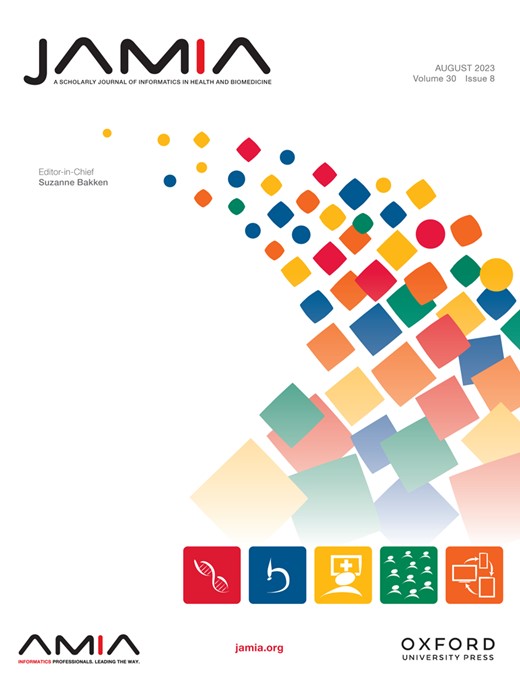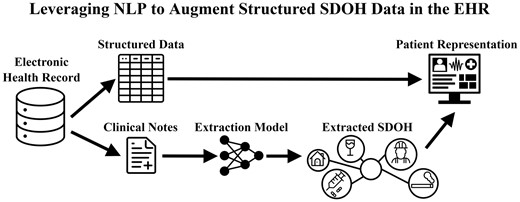-
Views
-
Cite
Cite
Kevin Lybarger, Nicholas J Dobbins, Ritche Long, Angad Singh, Patrick Wedgeworth, Özlem Uzuner, Meliha Yetisgen, Leveraging natural language processing to augment structured social determinants of health data in the electronic health record, Journal of the American Medical Informatics Association, Volume 30, Issue 8, August 2023, Pages 1389–1397, https://doi.org/10.1093/jamia/ocad073
Close - Share Icon Share
Abstract
Social determinants of health (SDOH) impact health outcomes and are documented in the electronic health record (EHR) through structured data and unstructured clinical notes. However, clinical notes often contain more comprehensive SDOH information, detailing aspects such as status, severity, and temporality. This work has two primary objectives: (1) develop a natural language processing information extraction model to capture detailed SDOH information and (2) evaluate the information gain achieved by applying the SDOH extractor to clinical narratives and combining the extracted representations with existing structured data.
We developed a novel SDOH extractor using a deep learning entity and relation extraction architecture to characterize SDOH across various dimensions. In an EHR case study, we applied the SDOH extractor to a large clinical data set with 225 089 patients and 430 406 notes with social history sections and compared the extracted SDOH information with existing structured data.
The SDOH extractor achieved 0.86 F1 on a withheld test set. In the EHR case study, we found extracted SDOH information complements existing structured data with 32% of homeless patients, 19% of current tobacco users, and 10% of drug users only having these health risk factors documented in the clinical narrative.
Utilizing EHR data to identify SDOH health risk factors and social needs may improve patient care and outcomes. Semantic representations of text-encoded SDOH information can augment existing structured data, and this more comprehensive SDOH representation can assist health systems in identifying and addressing these social needs.






